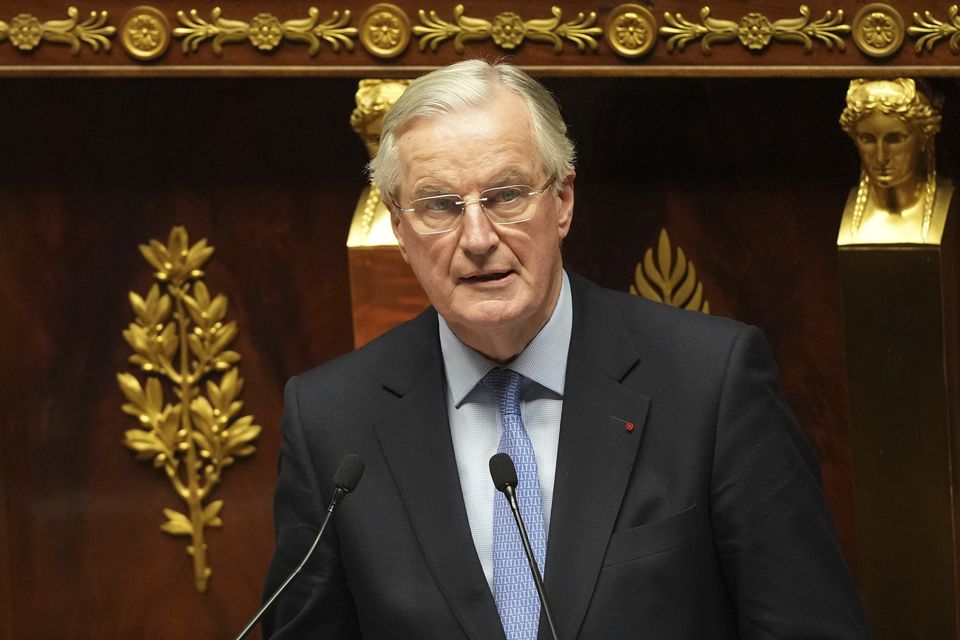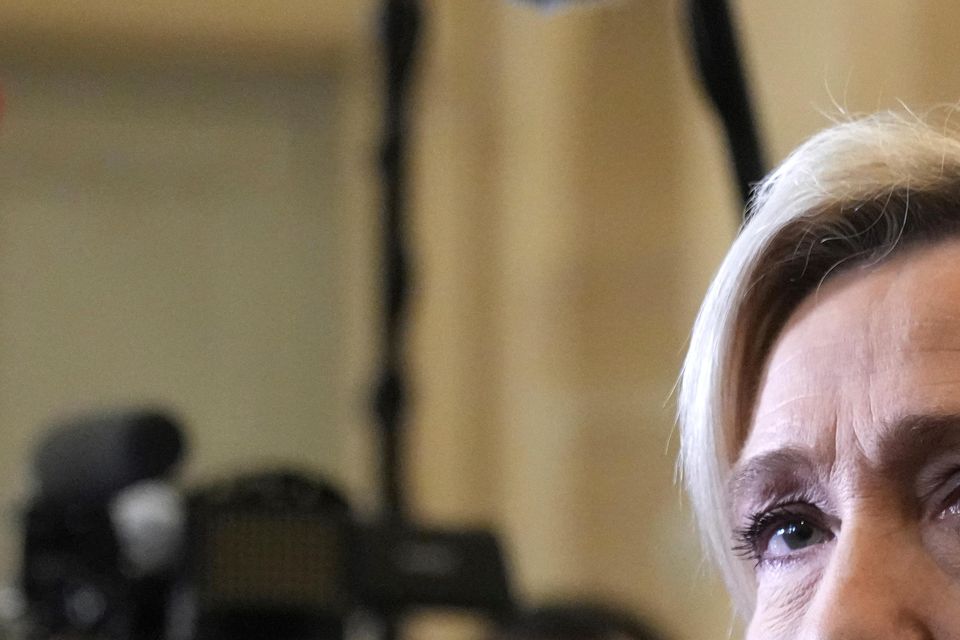French president Emmanuel Macron is seeking a political deal that would allow him to both name a new prime minister and “guarantee the stability of the country”, following the resignation of ousted Michel Barnier, a spokesperson for the outgoing government said.
Maud Bregeon said Mr Macron insisted there was at the moment no “broader” political alliance than the current one between his centrist allies and conservatives from The Republicans party, which does not have a majority in parliament.
She was relaying comments made by Mr Macron during a weekly Cabinet meeting.
Last week, the French president vowed to stay in office until the end of his term, due in 2027. The move followed a historic no-confidence vote prompted by budget disputes in the National Assembly that left France without a functioning government.
Michel Barnier addressing the National Assembly prior to the vote on the no-confidence motion that brought him down (Michel Euler/AP)
Mr Barnier’s government has been tasked with handling current affairs pending the appointment of a new prime minister.
Two options are still being considered by Mr Macron, Ms Bregeon reported.
The first one would be to find a way to “broaden the alliance”, she said, implicitly suggesting some leftists could join the government in addition to centrists and conservatives. That could give the future government a majority in the assembly.
The other option would be to make a deal with opposition parties on the left so that they commit not to vote on any no-confidence motion – even though they would not be governing parties, Ms Bregeon said.
Mr Macron did not provided any firm deadline for naming a new prime minister, she said.
Since last week, Mr Macron has held talks with politicians from the left and the right, including socialist leaders who now appear key in efforts to form a more stable government.
Discussions have not involved the far-right National Rally party led by Marine Le Pen nor the hard-left France Unbowed party of Jean-Luc Melenchon since Mr Macron said he would only speak to more moderate political forces.
Ms Le Pen, who helped oust Mr Barnier by supporting the no-confidence motion, demanded on Wednesday her party’s proposals on preserving the purchasing power of the French to be taken into account by the future government.
French far-right leader Marine Le Pen answers reporters at the National Assembly (Michel Euler/AP)
The next prime minister knows “what needs to be done to work in decent conditions”, that is “talk to all political forces and build a budget that doesn’t cross the red lines of each party”, Ms Le Pen said.
She concluded: “It’s perfectly doable.”
On Wednesday, the outgoing government unveiled a special Bill meant to enable the state to levy taxes from January 1, based on this year’s rules, and avoid a shutdown.
The Bill, expected to be approved by parliament by the end of the year, is “temporary”, outgoing budget minister Laurent Saint-Martin said.
“It aims to ensure … the continuity of the nation’s life, the regular functioning of public services and the fulfilment of our financial commitments.”
A proper budget law for 2025 will then need to be presented by the new government and approved at parliament in the coming months, Mr Saint-Martin said.

